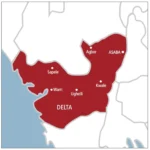
The Edo State Government has refuted claims that it revoked the Statutory Right of Occupancy (R of O) granted to Presco Plc, one of Nigeria’s leading agribusiness companies listed on Nigerian Exchange (NGX), dismissing a widely circulated public notice as “unauthorized, misleading and not reflective of government position.”
In an official announcement dated November 26, 2025, the state government described the earlier announcement purportedly signed by the governor as false and not emanating from any authorized government source.
The document clarified that the state did not revoke Presco’s land rights and has not taken any action disrupting the company’s operations.
Instead, it said what was under consideration was the excision of approximately 20 hectares of land, part of a much larger holding spanning over 13,500 hectares in Ologbo, Ikpoba-Okha Local Government Area, due to the presence of two strategic crude oil wells.
“The alleged publication did not emanate from the Governor or any authorized organ of the Edo State Government,” the announcement stated, adding that the action was allegedly orchestrated by the immediate past Managing Director of the Edo State Geographic Information Service (EDOGIS), who “acted without authorization and in complete disregard for established procedures.”
According to the government, limited land adjustment was necessary to preserve federal control over oil and mineral assets, as mandated by national law.
It cited Section 44(3) of the 1999 Constitution, the Petroleum Industry Act, and Section 28 of the Land Use Act, which collectively vest ownership of petroleum resources in the Federal Government and permit excision by overriding public interest.
However, the government emphasized that such excision did not equate to revoking Presco’s entire certificate of occupancy, nor was it an attempt to disrupt the company’s long-standing agricultural investment.
“Contrary to misinformation, Edo State is not dispossessing Presco Plc of its land. The government only acknowledged federal control over land hosting oil assets,” a senior official said.
The earlier publication caused public outcry and raised concerns over the state’s investment reputation. Presco Plc, a dominant agribusiness with 34 years of operations in Edo State, has employed thousands of residents directly and indirectly and is among the most profitable stocks on the Nigerian Exchange.
A copy of the disputed notice had cited “overriding public interest and the fact that two oil wells are on the land” as grounds for revoking Presco’s entire 13,545-hectare occupancy rights. Analysts had warned that the decision could undermine investor confidence and spark legal challenges.
“Abrupt policy disruption sends a wrong signal to investors,” Mr. Evans Asagwu, a capital market investor with investments in Presco shares, earlier cautioned.
“The latest clarification appears to be part of a coordinated effort to reassure investors, business partners and the agribusiness community,” said Asagwu, who expressed relief over the clarification.
The announcement confirmed that an administrative review has begun to determine how the unauthorized publication was processed and circulated. The government urged the public, stakeholders and the media to disregard the revoked land notice.
“The public is advised to ignore any unauthorized notice regarding Presco Plc. Government will uphold due process and investor protection,” it said.
Presco Plc has yet to issue a formal response, but industry observers say the company may seek legal clarity or compensation if any excision affects its operational infrastructure.
Economists argue that while oil is strategic, Edo State must avoid actions that appear hostile to investors.
“Balancing mineral resource control with agribusiness continuity is critical,” a development policy expert noted.
The development has placed Edo State’s investment policies under the spotlight. While the government insists it supports industrial agriculture, its actions will likely be monitored closely to ensure consistency with economic diversification efforts.
For now, the administration maintains that Presco remains a priority investment partner and that “only a small parcel of land is under review—not the company’s entire holdings.”
With tensions eased, eyes are now on the outcome of the administrative probe—and how Edo State manages the delicate intersection between agriculture, oil exploitation and investor confidence.













